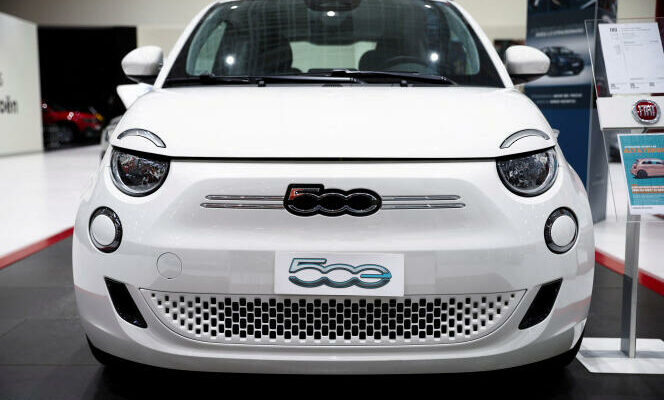The “social leasing” formula, which will allow the least well-off households to rent an electric car for at least three years for 100 euros per month, will be operational from 1er January. “The goal is to help you buy electric vehicles produced here,” declared the President of the Republic in a video broadcast Thursday December 14 late morning.
This mechanism, which is one of the proposals put forward by candidate Emmanuel Macron during the 2022 presidential campaign, will be open to households whose reference tax income is less than 15,400 euros per share. This criterion, which should make it possible to put “social leasing” within the reach of half of the least advantaged households, is the same as that which made it possible to award the “fuel discount” at the pump until the end of 2022.
However, given the few electric vehicles that can be rented for 100 euros, this offer will initially be limited to households who can also prove an annual mileage greater than 8,000 kilometers and/or a greater distance 15 kilometers between their home and work. In 2024, 20,000 to 25,000 beneficiaries are planned, double in 2025.
Ecological bonus
The formula put in place by the government will be accessible through “leasing” companies with which candidates will have to contact via a site which will be open on Friday December 15. For each vehicle, state aid could reach around 13,000 euros. This sum will allow beneficiaries to not have to pay an initial rent of several thousand euros, as is generally the case in long-term rental packages.
This support includes in particular the ecological bonus of 5,000 euros allocated to the purchase of an electric car, the conditions of allocation of which will, from 2024, be determined by the carbon footprint of the vehicle concerned, measured according to its manufacturing conditions. (in particular the origin of the electricity used by the manufacturer) and transport.
Made public this Thursday, December 14, the list of models meeting these criteria includes around forty vehicles, none of which were produced outside Europe. Notably excluded are cars from Chinese brands but also the Spring from the Dacia brand (Renault group), one of the cheapest and best-selling electric vehicles in France.
